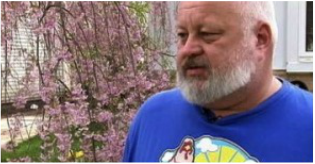January 28, 2016
Agriculture Commissioners Meeting
The Michigan Agriculture Commissioners met yesterday (27-JA-2016) to vote on accepting the proposed changes to the 2016 GAAMPs. Proposed changes were made to three (3);
- Manure Management GAAMP
- Nutrient Utilization GAAMP
- Site Selection and Odor Control GAAMP
Livestock – For purposes of the Site Selection GAAMPs, livestock means those species of animals used for human food, fiber, and fur, or used for service to humans. Livestock includes, but is not limited to, cattle, sheep, new world camelids, goats, bison, privately owned cervids, ratites, swine, equine, poultry, and rabbits. For the purpose of the Site Selection GAAMPs, livestock does not include dogs and cats. Site Selection GAAMPs do not apply to aquaculture and bees.
This change creates a separation from the language of the PA93 and subsequently removes reference to RTF. This is a policy change that attempts to circumvent the intent of the actual legislation. It follows the changes of 2015 that created categories describing who may be entitled to access the state law and who will be denied equal protection under the law.
Missing from this GAAMP is reference from an earlier draft that gave power to the Michigan Department of Environmental Quality (DEQ) and the Michigan Department of Natural Resources (DNR) to declare what animals are allowed or are considered invasive. It is unclear if this is or will be reinstated in the GAAMP as approved by the commissioners. The actual version as voted on was not made available to the public. Thus we have to wait until the revised copy is published.
The lack of transparency was noted by Commissioner Montri who pointedly asked the GAAMP committee chairs if they allowed for members of the public (i.e. small farmers) to sit on the committees. Both chairs, MSU Professors, Tim Harrigan and Dale Rozeboom seemed reluctant to address the concern. MDARD representatives Brad Deacon and Jim Johnson stated that the public was not qualified to sit on these committees which are made up of industrial professionals. Furthermore, the committees are not subject to the Open Meetings Act. Director Clover Adams mentioned that the only obligation to transparency is the meeting at which the commissioners vote. The public hearings on proposed changes are a courtesy provided by MDARD. Mr. Deacon noted that public meetings cost the department between $5000 – 10,000 to conduct.
Public concerns are forwarded to the committees who have the final say whether or not to address public concerns. The committees are appointed by the chair who also is appointed to the position. These are not elected officials.
Recognized Professionals: Recognized professionals in the siting and management of livestock production and odor control practices may include, but are not limited to, personnel from the following:
a)Conservation Districts
b)Industry Representatives
c)Michigan Department of Environmental Quality
d)Professional Consultants and Contractors
e)Professional Engineers
f)United States Department of Agriculture - Natural Resources Conservation Service
g)University Agricultural Engineers, and other University Specialists
It should be noted that currently these committees are staffed by industry personnel, township personnel and members of the Farm Bureau Insurance operations.
In noting this, Commissioner Wolcott said that if small farmers want a voice then they should join one of the larger organizations.
Other topics on the agenda included a presentation of the MAEAP program. Michigan Agriculture Environmental Assurance Program is one of the best policies in the nation for helping farms of all sizes protect and sustain the environment. MAEAP is moving their verification process to an accessible database system in an effort to market those verified operations.
The Laboratory Division of MDARD presented a snap shot of their operation. Director Craig VanBuren said that with just three (3) full time staff over 14,000 samples were tested in 2015. One thing they test for is drugs in animal feed.
In summary, there appears to be bias against small operations as industrial farm operations are favoured by MDARD and its political supporters. For now, we need to remain vigilant in our practices and supportive of each other. That includes demanding more transparency and accountability.



 RSS Feed
RSS Feed